1: How is climate change affecting wildlife?
The world we live in is changing at an alarming rate, and perhaps the most concerning change of all is climate change. This global phenomenon not only affects our environment but also has a profound impact on the wildlife that inhabits it. From rising temperatures to extreme weather events, animals are facing unprecedented challenges in their struggle for survival. In this blog post, we will delve into how climate change is affecting wildlife and what steps we can take to protect these precious creatures from its devastating effects. Join us as we explore the interplay between climate change and our beloved animal kingdom!
To join a community of wildlife enthusiast visit MojoStreaming
2: What species are affected most from climate change?
The impact of climate change on wildlife is far-reaching, but certain species bear the brunt of its effects more than others. One such group is polar bears, whose icy habitats are rapidly melting due to rising temperatures. These majestic creatures rely on sea ice for hunting and raising their young, but with the Arctic ice diminishing at an alarming rate, their survival is under threat.
Similarly, coral reefs around the world are suffering immensely from warming ocean temperatures caused by climate change. Corals depend on a delicate balance of factors to thrive, including specific water temperatures. As these conditions shift, corals experience bleaching events that can lead to mass die-offs and irreparable damage to these vital ecosystems.
Another vulnerable species is the Adélie penguin found in Antarctica. With shrinking ice cover affecting their access to food sources like krill and fish, populations have been declining rapidly in recent years.
Birds migrating across vast distances also face challenges as climate patterns shift dramatically along their routes. Changes in temperature and availability of food can disrupt migration patterns and put immense stress on already threatened bird populations.
These examples represent just a fraction of the many species impacted by climate change. The consequences extend beyond individual animals; they affect entire ecosystems upon which countless other organisms rely for survival. Understanding which species are most affected allows us to prioritize conservation efforts and take action before it's too late for our precious wildlife counterparts.
3: How do animals survive forest fires?
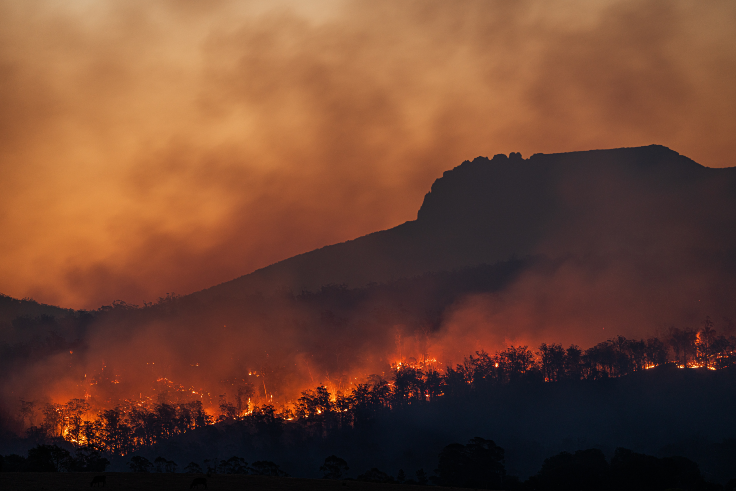
Forest fires can be devastating, not only for humans but also for wildlife. These fierce blazes can destroy habitats and force animals to flee from their homes in search of safety. So, how do animals manage to survive such a destructive force?
Some species have developed extraordinary adaptations that help them endure forest fires. Take the black-backed woodpecker, for example. This remarkable bird is well-equipped to handle post-fire environments because it feeds on insects found in burned trees.
Other animals rely on their agility and speed to escape the flames. Deer, rabbits, and squirrels are known for their ability to quickly navigate through burning forests and find refuge in safer areas.
Burrowing creatures like groundhogs or gophers have an advantage during wildfires as they retreat underground where the heat is less intense.
Additionally, certain species have evolved with fire-resistant characteristics. Plants like some pines produce cones covered with resin that protects seeds from fire damage until conditions become suitable again for growth.
While many animals can adapt or escape forest fires, large-scale infernos pose a great threat to all wildlife populations. The loss of habitat and food sources makes it challenging for these creatures to recover after such catastrophic events.
Preventing forest fires through responsible human behavior is crucial in preserving wildlife habitats. Proper land management practices such as controlled burns can even benefit certain ecosystems by reducing fuel loads and promoting biodiversity.
In conclusion (not concluding), while some animals possess unique abilities allowing them to survive forest fires, the increasing frequency and intensity of these disasters due to climate change make it imperative that we take action now before more lives are lost – both human and animal alike!
4: How do we help wildlife survive climate change?
Climate change poses significant challenges to wildlife around the world. As temperatures rise and ecosystems shift, many species struggle to adapt to these rapid changes. So how can we help them survive in this changing environment?
One crucial step is preserving and restoring habitats. By protecting natural areas such as forests, wetlands, and coral reefs, we provide essential shelter and food sources for wildlife. Restoring degraded habitats can also help create more resilient ecosystems that are better equipped to withstand climate impacts.
It's also important to reduce our carbon footprint. By decreasing greenhouse gas emissions through cleaner energy sources and sustainable practices, we can slow down the rate of climate change itself. This not only benefits wildlife but also helps preserve the delicate balance of our planet's ecosystems.
Furthermore, promoting sustainable agriculture practices is vital for both human survival and wildlife conservation. Encouraging methods that minimize deforestation, soil erosion, and chemical use can protect habitats while ensuring a stable food supply for all creatures.
Collaboration between governments, organizations, scientists,
and communities is key in implementing effective conservation strategies.
By sharing knowledge and resources,
we can develop proactive plans that prioritize the needs of vulnerable species
and ensure their continued survival in a changing climate.
Ultimately though,
the future of wildlife relies on our ability
to address the root cause of climate change.
By taking collective action at every level - from individual choices
to international agreements - we have the power
to mitigate its effects on our precious biodiversity.
Let us remember that when it comes to helping wildlife survive climate change,
every little effort counts.
Together,
we can make a difference
for the sake of our planet’s incredible biodiversity
5: What kind of impact is climate change currently having on our wildlife?
Climate change is wreaking havoc on our wildlife, causing a multitude of negative impacts. Rising temperatures are altering ecosystems and disrupting the delicate balance that many species rely on to survive. For example, as temperatures increase, sea levels rise and coastal habitats such as mangroves and coral reefs are being destroyed. This directly affects marine life like fish, turtles, and seabirds who depend on these habitats for food and shelter.
Not only that but climate change is also causing more frequent extreme weather events such as hurricanes, droughts, and floods. These events can have devastating consequences for wildlife populations. Forest fires are becoming more intense and widespread due to drier conditions caused by climate change. Animals that cannot escape in time often perish in these fires.
Moreover, changes in precipitation patterns affect the availability of water sources which can lead to dehydration and famine among animals. Species with specialized diets or specific breeding requirements may struggle to find enough food or suitable nesting sites due to shifts in plant growth patterns caused by changing climates.
Climate change poses a significant threat to our wildlife's survival. Urgent action must be taken at both individual and collective levels if we want to protect the incredible biodiversity found across the globe from further harm caused by human-induced climate change
Do you Love Wildlife watch our library of short videos, documentaries, and more at watch wildlife content
6: What does the future look like for our wildlife if we do not combat climate change?
The future of wildlife hangs precariously in the balance as we continue to ignore the urgent need for action on climate change. If we fail to combat this global crisis, our beloved animals will face unprecedented challenges that threaten their very existence.
Rising temperatures and erratic weather patterns are wreaking havoc on ecosystems around the world. With each passing year, we witness more frequent and intense heatwaves, droughts, floods, blizzards, and mudslides. These extreme events not only destroy habitats but also disrupt crucial breeding cycles and migration patterns.
As temperatures soar, many species find themselves trapped in a hostile environment where they struggle to find food and water sources. The loss of biodiversity could be catastrophic as delicate ecosystems collapse under the strain.
For marine life, warming oceans pose a grave threat. Coral reefs are already suffering from bleaching events due to rising sea temperatures - an alarming reminder of how fragile these underwater wonders truly are.
Climate change also exacerbates existing threats such as deforestation and poaching by pushing vulnerable species further towards extinction. Without immediate action to curb greenhouse gas emissions and protect natural habitats, iconic creatures like polar bears or elephants may become mere memories within our lifetimes.
The consequences extend beyond individual species; entire ecosystems are at risk of unraveling if climate change continues unchecked. The interconnectedness between plants, animals, insects - every living organism - ensures that any disruption has far-reaching implications for all life forms involved.
But it's not too late to make a difference! By embracing renewable energy sources, implementing sustainable practices in agriculture and industry, supporting conservation efforts worldwide, and advocating for stronger environmental regulations from governments globally; we can still turn the tide.
We owe it to future generations – both human and animal – to act now before it is too late. Together with concerted efforts from individuals, families, governments, businesses, and organizations; we have hope that our wildlife can thrive once again amidst a changing climate.
It is time to work together and prioritize the preservation of our precious planet and its magnificent
Our planet and the animals that live on it are magnificent - check out the beauty by visiting Our Wildlife Photo Gallery
7: What organizations and political parties are the biggest threat with fighting climate change?
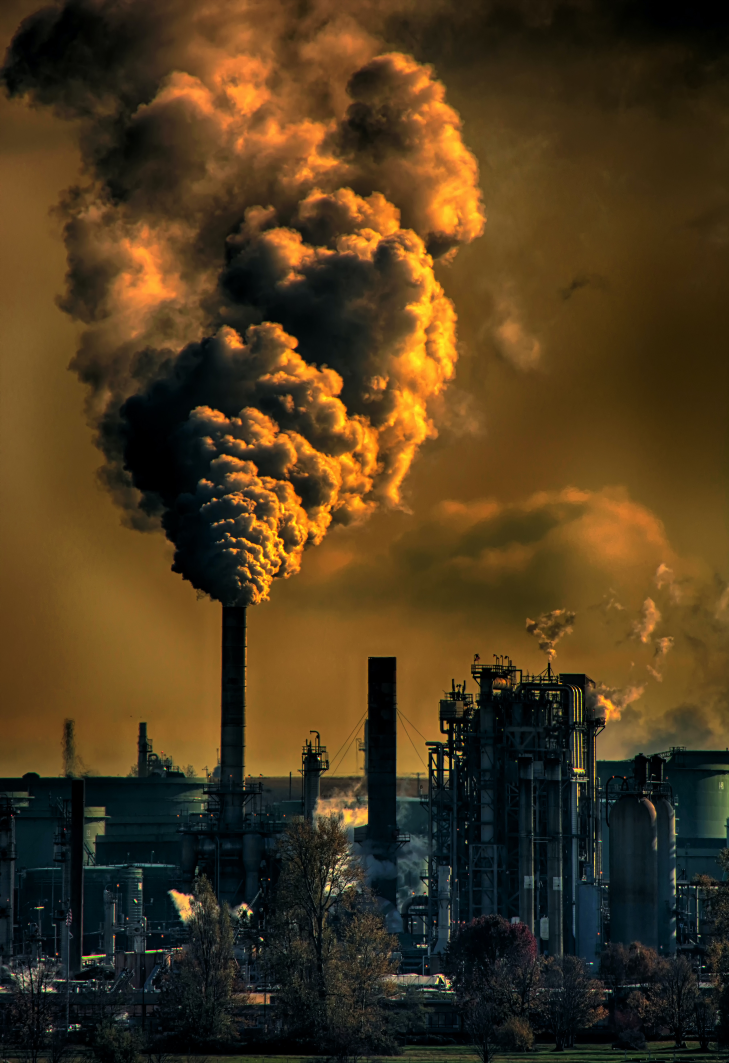
When it comes to fighting climate change, there are certain organizations and political parties that pose significant challenges. While many groups are actively working towards solutions, some have been resistant or slow to acknowledge the urgency of the issue.
One organization that has faced criticism for its stance on climate change is the fossil fuel industry. With their vested interests in maintaining profits from oil, gas, and coal extraction, these companies often lobby against regulations that would limit greenhouse gas emissions. Their influence extends to political campaigns as well, where they contribute significant sums of money to candidates who align with their agenda.
In addition to the fossil fuel industry, certain political parties have also hindered progress in combating climate change. Some conservative parties tend to prioritize economic growth over environmental concerns and may be skeptical about the science behind climate change. This skepticism can lead to policies that undermine efforts to reduce carbon emissions and transition towards renewable energy sources.
It's important to note that not all organizations or political parties fall into this category. Many environmental advocacy groups work tirelessly to raise awareness about climate change and push for policy changes at local, national, and global levels. Likewise, some progressive political parties have made addressing climate change a core part of their platforms.
Addressing climate change requires collaboration across sectors and ideologies. It's crucial for both public pressure and effective leadership from governments around the world if we want meaningful action taken on this pressing issue.
MojoStreaming is a platform like no other that takes on challenges such as poaching, trophy hunting, and political parties that cause a threat to the future of our wildlife. Watch our talk shows and debates at Watch HERE
Finally: What is the first and most important thing we can do to prevent climate change?
The first and most important thing we can do to prevent climate change is to take action now. We cannot afford to wait any longer. Every individual has a role to play in this global issue.
One of the simplest ways we can make a difference is by reducing our carbon footprint. This includes making small changes in our daily lives, such as using energy-efficient appliances, driving less or carpooling, and conserving water and electricity.
Furthermore, supporting renewable energy sources like solar and wind power can have a significant impact on reducing greenhouse gas emissions. By advocating for clean energy policies and investing in sustainable technologies, we can help shift towards a greener future.
Additionally, it's crucial that we educate ourselves and others about the importance of protecting our environment. By raising awareness about the consequences of climate change on wildlife and ecosystems, we can inspire more individuals to join the fight against it.
Holding governments accountable for their environmental policies is essential. Supporting politicians who prioritize climate action will ensure that necessary regulations are put in place to mitigate the effects of climate change on wildlife.
Remember: every action counts! Together, we have the power to protect our planet’s precious biodiversity from further harm caused by climate change. Let us act now so that future generations may experience a world teeming with diverse wildlife thriving under stable climatic conditions.
Be sure to visit the sign up page and become a subscriber!
Great news to read that the House of Lords is to back the ban on trophy hunting imports into the UK (Saturday Mirror June 17th).
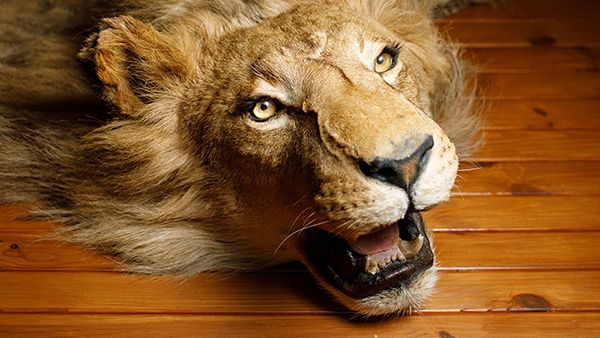
What planet is Crossbencher Lord St John of Bletso on?, who in his ignorance supports the bill, and comments “ Evidence shows properly regulated wild trophy hunting does play an important role in wildlife conservation”.
Certainly not in Zimbabwe M’Lord! – as a former Chief Inspector for the Zimbabwe National Soc. For the Prevention of Cruelty to Animals (ZNSPCA), I saw first hand how funding that was supposed to be given to the local communities where hunts took place, was rarely received by them.
Instead due to rampant corruption, it was the Town Councillors who were seen driving around in 4x4s and Mercedes, while the local villagers got nothing, except possibly some meat from the hunts.
In addition, some of the trophy hunters who visit Zimbabwe are also guilty of unethical practices, such as using donkeys and goats as live bait.
In addition, there are still several trophy hunters who are using packs of imported hounds to hunt Zimbabwean leopards which was illegal under Zimbabwe’s Wild Life Act.
I know because I was responsible for getting an Amendment to the Act making it illegal for hunters to use packs of dogs - only for the USA’s notorious Safari Club International to swiftly “persuade” the Zimbabwean Govt to make hunting with dogs “legal” again.
This practice is disliked by many professional hunters, who say that “the leopard does not stand a chance”, one Zimbabwean hunter who did use dogs for his clients, when questioned in an interview as to whether this method was ethical? - replied “it may be cruel”
Pro Trophy Hunting activists should be aware that several hunting safaris in Zimbabwe still offer this practice to their rich overseas clients, who pay extra if packs of dogs are used.
However, if a local Zimbabwean living in the rural areas, is caught hunting with his own indigenous dogs to catch rabbits and small animals to feed his family – the Zimbabwean Government’s Police shoot his dogs, he is arrested, taken to court and fined, with the possibility of being jailed if he has no money for the fine, which is more often the case............talk about double standards.
.
May I suggest that Lord St John of Bletso gets his facts right – trophy hunting is not the cosy “regulated “ pastime he seems to think it is?
Meryl Harrison
I have been following the story of Hvaldimir the Beluga Whale and was inspired to write this Saga to try to influence the ending, by rallying some resources to finally get him to a place of safety. He’s lost, far from home and very far from safe. You can keep up with the latest on the OneWhale socials. There are 6 Chapters so far, and now he is in Sweden. Here is Chapter 1.
Images: One Whale
OneWhale: https://www.onewhale.org/
My Website: https://www.theonemillionpoetry.com/
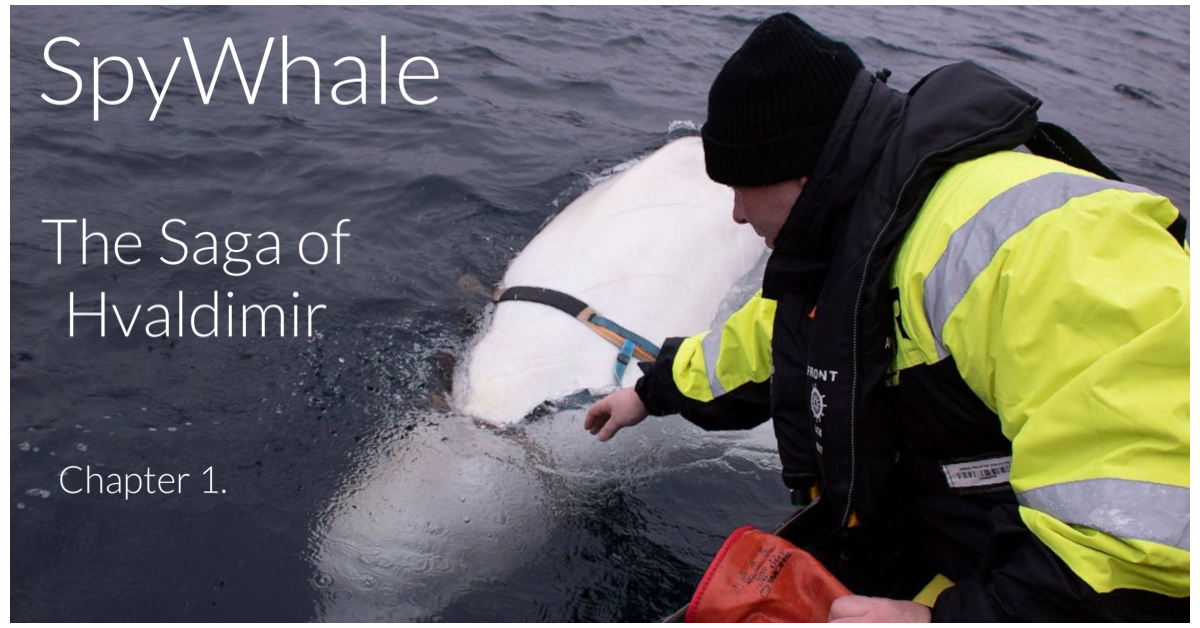
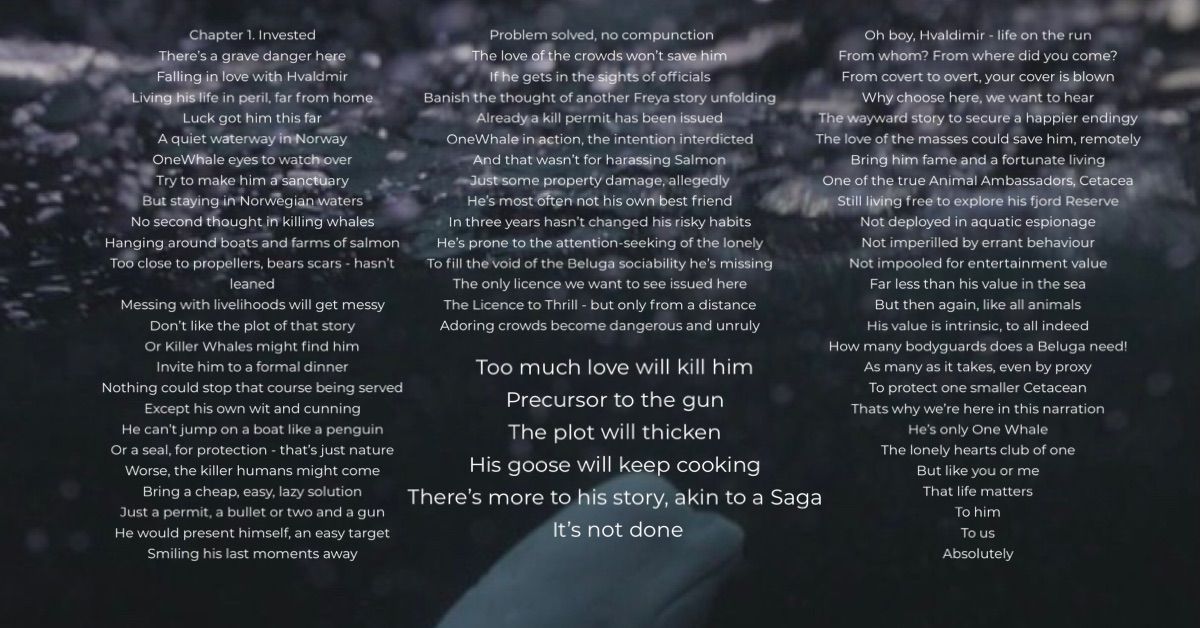
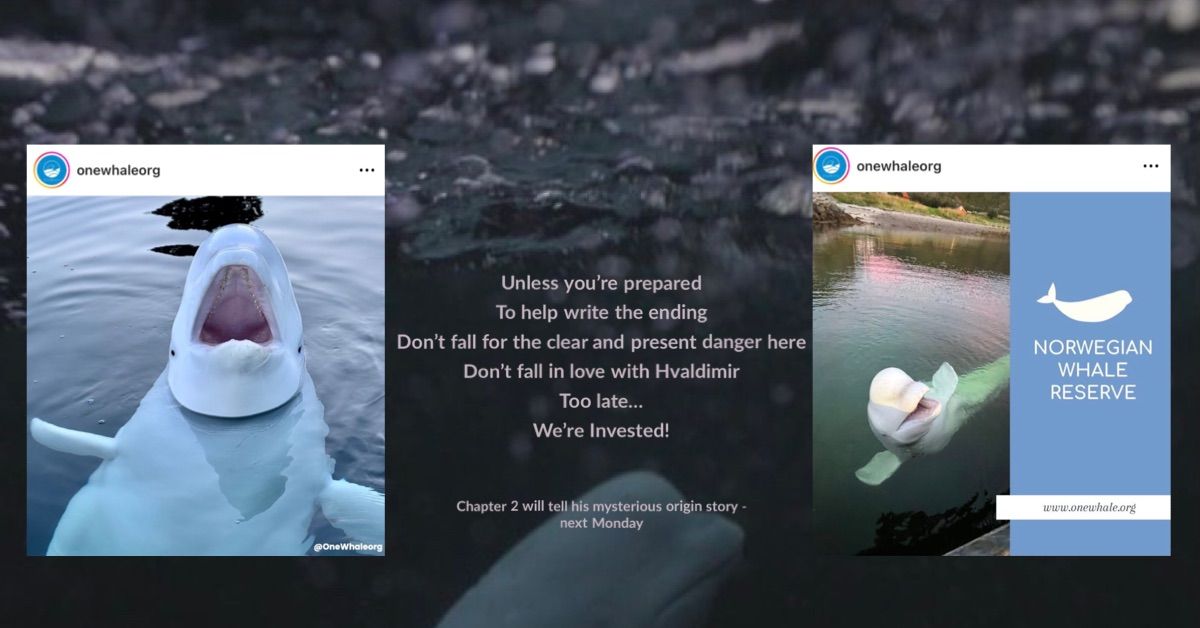
Facts on the Inhumane Practices of Hunting Contests
Hunting has been a popular activity for centuries, with many people enjoying the rush of tracking and taking down wild game. However, what many fail to realize is that this so-called "sport" has a darker side - one that involves animal cruelty, unethical practices, and inhumane treatment of wildlife. Hunting contests are just one example of this, where hunters compete to see who can kill the most animals in a set amount of time. We'll take a closer look at these competitions and delve into the facts surrounding their impact on both individual animals and entire ecosystems. Hunting contests are typically held in environments where there is a high concentration of wildlife. This means that the animals involved in these contests have had their natural habitat reduced. In this blog post, we're going to expose the dark side of hunting competitions in America - from baiting and trapping animals to using illegal methods - so buckle up and prepare to be shocked.
Many people don't realize is that the so-called "sport" has a dark side – one that involves animal cruelty
Many people view hunting as a traditional pastime that has been around for centuries. However, what many fail to realize is that the activities associated with this so-called "sport" can be incredibly cruel and inhumane. Hunting contests are one of the most egregious examples of this.
During these competitions, hunters compete to see who can kill the most animals within a set period of time. The focus is not on sustainable or responsible hunting practices but rather on winning at all costs. This often leads to unethical behavior such as cheating and taking shortcuts.
Moreover, hunting contests result in an astonishing number of animal deaths - far more than necessary for food or population control purposes. As a result, entire species have been pushed closer to extinction due to overhunting.
The suffering caused by these events cannot be overstated either. Many animals experience prolonged periods of pain before finally succumbing to their injuries - hardly a fair fight for any living creature.
It's important that we recognize the dark side of hunting and take action against practices like hunting contests that cause immense harm to wildlife populations and ecosystems alike.
Which States have the most hunting contests
Hunting contests are a widespread practice in many states across the US. According to reports, hunting competitions take place in more than 40 states, with some of them hosting multiple events each year. Among these states, Texas tops the list as having the most significant number of hunting contests.
In recent years, other states have also seen an increase in the number of hunting contests held within their borders. Arizona and New Mexico have become popular destinations for predator killing competitions, while Montana and Wyoming host several elk-calling tournaments.
However, it is worth noting that not all states permit hunting contests. California became the first state to ban wildlife-killing contests in 2014 when it outlawed coyote-killing competitions.
Despite this progress towards ending unethical hunting practices, there are still numerous challenges involved in bringing an end to such events altogether. It's essential that we continue raising awareness about this issue and advocating for stricter regulations surrounding wildlife management practices across all American states.
Texas does alot of disturbing unethical things involving wildlife and are very good as misleading the public
https://wildlifepartners.com/about-us/
"The above is a scam in my personal opinion. I had an interesting conversation with Brian Gilroy. I believe the organization has creatively fooled people that what they do is for conservation when I believe it is 100% about money. I also believe alot of their revenue comes from enclosed hunting on their ranch." Cami Ciotta
What organizations are behind hunting contests
Hunting contests are often organized by local hunting clubs, but there are also national organizations that support and promote these inhumane events. One such organization is Safari Club International (SCI), which hosts an annual convention where hunting enthusiasts can bid on hunts for rare and endangered animals.
One of the most hated by Activists is Jens Ulrich Hoch Hunter and Communications officer for Nordic Safari Club.
The National Rifle Association (NRA) is another powerful organization that supports hunting contests. They argue that these competitions promote responsible gun ownership and wildlife conservation, but the reality is far from it - many of the species targeted in these contests are not even considered game animals. The winners not only can win money, trophy hunting Safari trips, but also guns!
Other smaller organizations also exist to promote hunting contests, often with misleading names like "Wildlife Conservation Society." These groups claim to be working towards conservation efforts while simultaneously supporting activities that harm wildlife populations.
It's clear that the organizations behind hunting contests prioritize profit over ethics or environmental protection. It's up to individuals to educate themselves on the true motives of these groups and take action against their harmful practices.
Why are there not stricter rules and regulations for hunting contests
Despite the evident inhumane practices of hunting contests, it remains legal throughout many states in the US. However, one may wonder why there aren't stricter rules and regulations for this so-called "sport." The answer to that is not simple.
Firstly, hunting has always been a part of American culture. It has existed for centuries as a means of gathering food or protecting livestock from predators. Due to its cultural significance, it can be challenging to convince lawmakers and hunters themselves to change their ways.
Secondly, hunting contests are often organized by powerful organizations such as the Safari Club International (SCI) or the National Rifle Association (NRA). These groups have significant lobbying power and influence over politicians who make laws that govern hunting activities. Plus many of our lawmakers are bought by the NRA and they now own them. The most powerful organization and most harmful organization in the U.S. is the NRA. Until someone, or some group has enough resources/money the NRA will always win and will continue to run the U.S. The way to win and to take their power away is to get enough citizens to go against them. It is all in the numbers.
Despite efforts made by animal welfare activists and environmentalists to push stricter regulations on these events, they still face opposition from those who view them as an infringement on their rights. Additionally, law enforcement agencies tasked with enforcing existing regulations may lack resources or funding necessary for proper implementation.
As a result of these factors combined with other underlying issues like politics and economics; our wildlife continues suffering at the hands of unethical slaughter during hunting competitions.
Why are hunting contests legal
The legality of hunting contests is a perplexing issue, especially given the inhumane and unethical practices associated with such events. It's important to understand that hunting is regulated by state laws, meaning jurisdictions play a significant role in determining whether or not hunting competitions are legal.
One reason why these contests may be considered lawful is because they generate revenue for both private businesses and state governments. Hunting activities bring money into rural areas through tourism, lodging, food services, and equipment sales. Additionally, states often receive license fees from hunters which help finance conservation efforts.
Another argument used to support the legality of these contests centers around individual rights. Proponents argue that participating in hunting contests falls under their right to bear arms and pursue leisure activities as guaranteed by the Constitution.
Unfortunately, it seems that concerns about animal welfare have been overshadowed by financial gain and personal freedoms when it comes to regulating hunting competitions. The fact remains that these events cause immense suffering for wildlife populations and can disrupt entire ecosystems - all in the name of "sport".
How Legislation is Failing to Protect Animals from Hunting Contests
Despite efforts by animal rights activists and the public, legislation is failing to protect animals from hunting contests. Hunting competitions are legal in many states, which means that organizers can hold them without fear of criminal prosecution.
In most cases, there are no laws regulating these events. Even when regulations exist, they may be weak or poorly enforced. This lack of oversight allows hunters to engage in unethical behavior such as using illegal baiting techniques or shooting more animals than allowed.
Furthermore, some organizations behind hunting contests have powerful lobbyists who influence state legislators and prevent stricter regulations from being implemented. These lobbyists argue that hunting contributes to conservation efforts and brings economic benefits to rural areas which is a huge lie and people are believing such lies. Please step up and do your part by educating others or simply share this article.
However, the reality is that hunting contests often lead to the unnecessary slaughter of wildlife and cause suffering for individual animals. Species can also become endangered due to excessive hunting pressure on their populations. The ecosystem itself can suffer if certain species disappear or become too scarce.
It's clear that current legislation is not doing enough to protect animals from inhumane practices associated with hunting contests. More needs to be done at both the state and federal levels if we want a future where wild animals are treated with respect and dignity rather than as mere targets for cruelty and sport.
What You Can Do To Help End hunting competitions
It's time to take a stand against the inhumane practices of hunting contests and protect our wildlife from suffering, torture, and extinction. As individuals, we can make a difference by raising awareness about these unethical competitions and advocating for stricter regulations.
One of the most effective ways to end hunting contests is to support organizations that are actively working towards this goal. Consider donating your time or money to groups like the Humane Society of the United States or Project Coyote is a favorite of MojoStreaming. https://projectcoyote.org/
Also, support MojoStreaming an online wildlife channel that are advocates for our wildlife. Join us for free (for a limited time) to watch or even participate in live debates, interviews, and more. Join other like-minded, compassionate people who have a love for nature and wildlife! It is a great community to be a part of: Learn more at
https://www.mojostreaming.com/
Sign up: https://www.mojostreaming.com/signup
Additionally, you can reach out to your local representatives and urge them to enact laws that ban hunting contests altogether. Your voice can make all the difference in protecting our ecosystem from needless cruelty and slaughter.
I URGE EACH OF YOUR READING THIS TO WATCH THIS 2 MIN TRAILER!
Share this video: https://www.mojostreaming.com/video/837/wildlife-killing-contest
If you have time watch this informative but disturbing short film:
https://www.youtube.com/watch?v=mV0UZsaMjMM
Let us remember that animals are sentient beings deserving of respect, compassion, and protection. By taking action today, we can create a better future where wildlife is cherished rather than exploited for human entertainment.